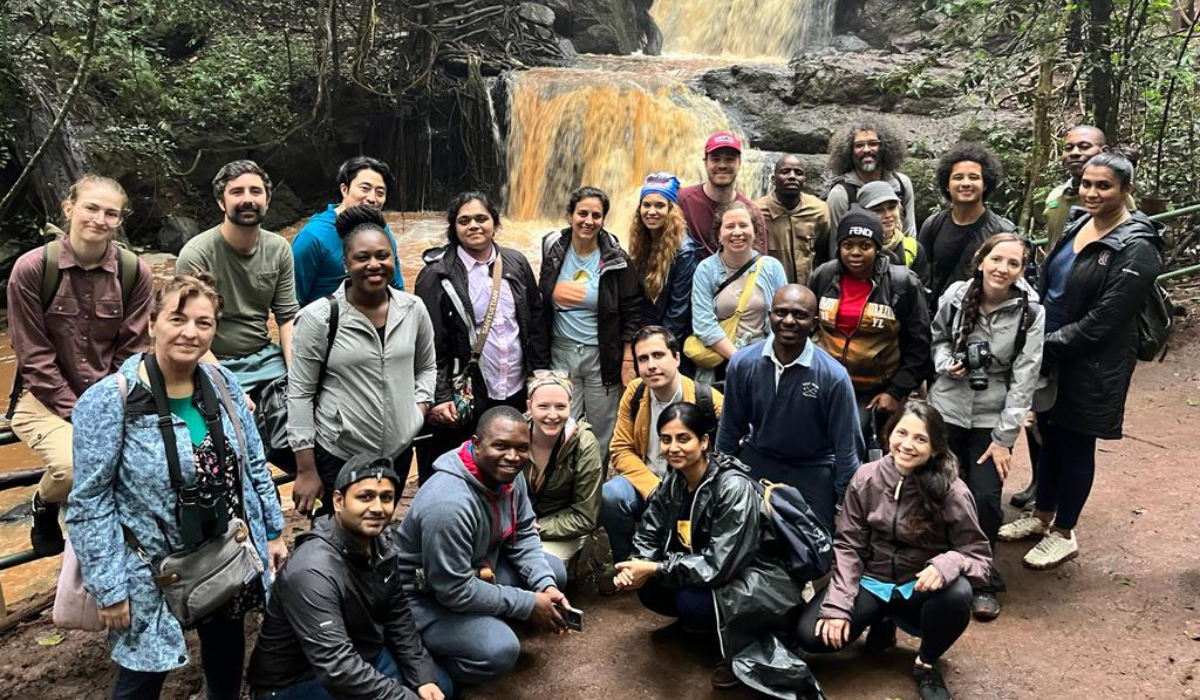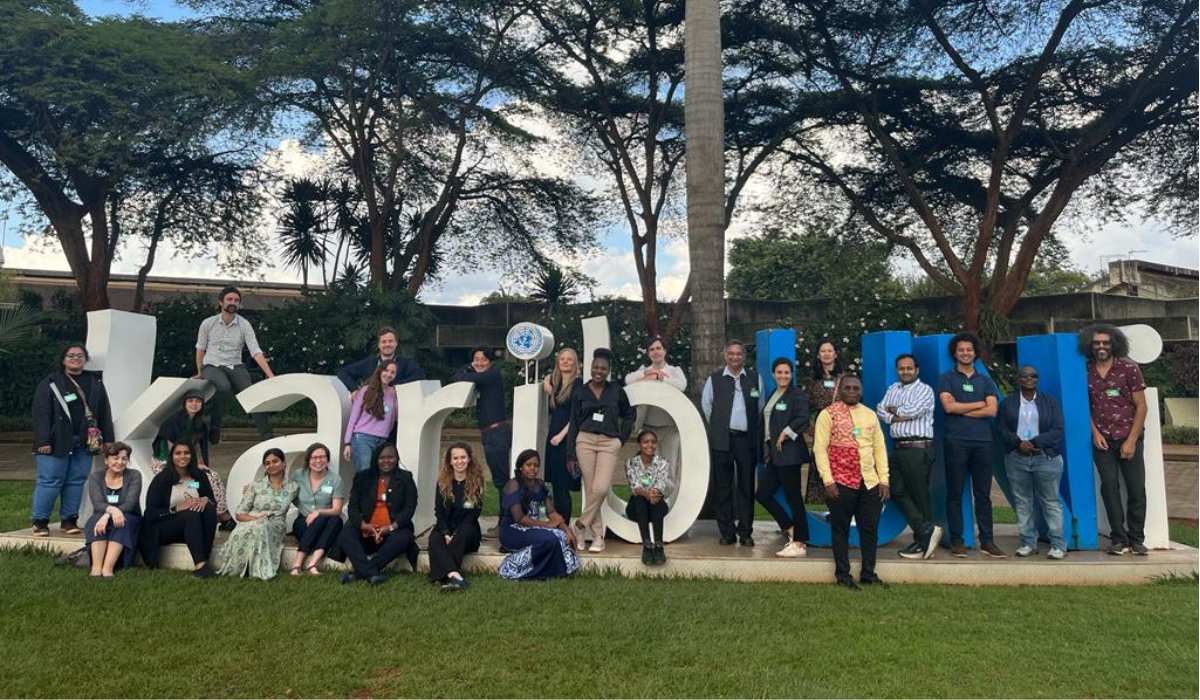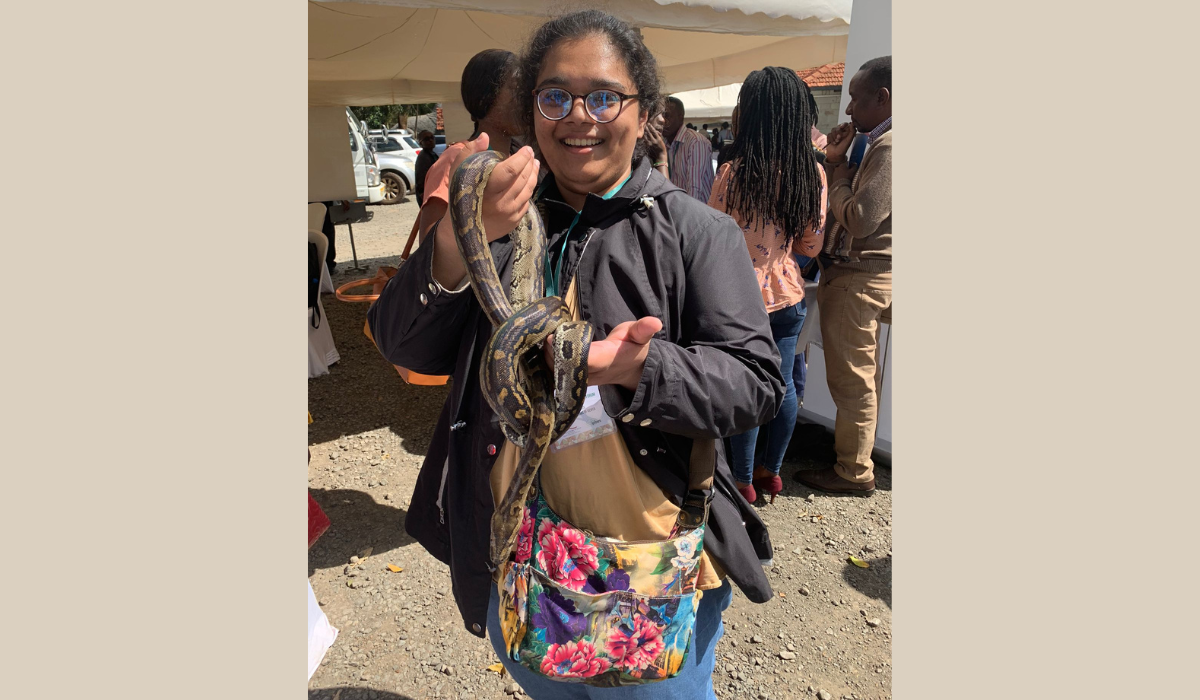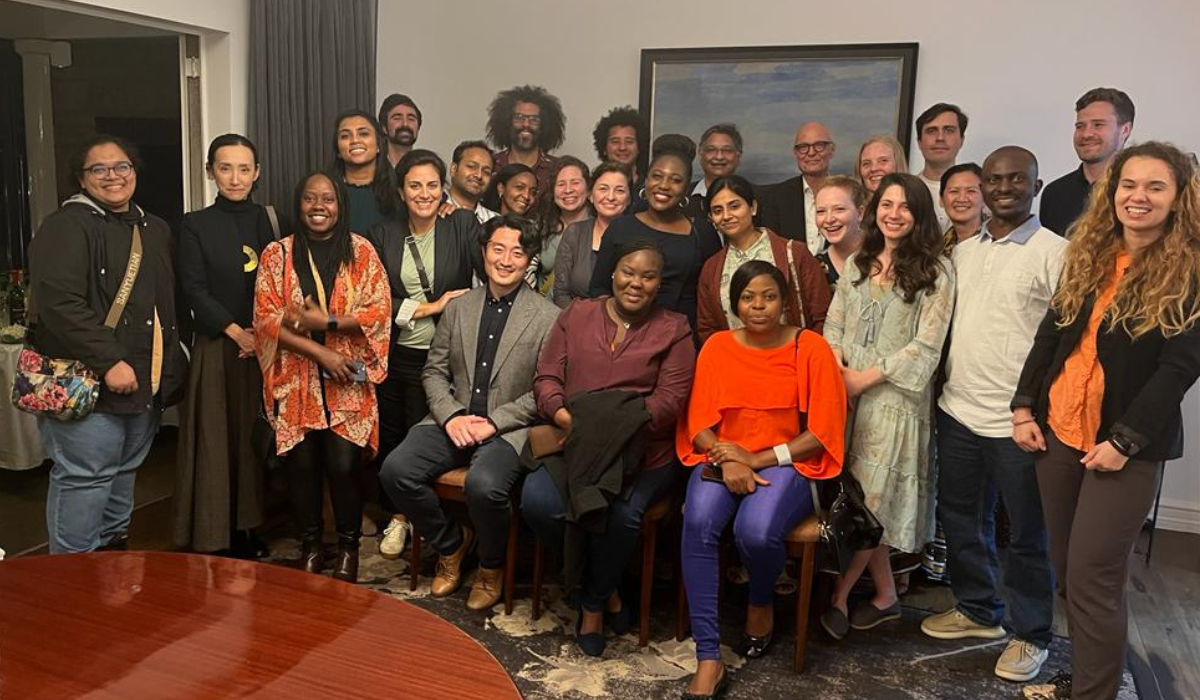Nazifa Rafa is part of the multidisciplinary and multicultural group of outstanding early-career individuals on the IPBES Fellowship Programme.
Lucy alumna, Nazifa Rafa (MPhil in Environmental Policy, 2021), recently attended a fellows' capacity-building workshop in Nairobi, hosted by the Intergovernmental Science-Policy Platform on Biodiversity and Ecosystem Services (IPBES), an intergovernmental organisation established to improve the interface between science and policy on issues of biodiversity and ecosystem services. She is serving as a fellow for the upcoming Nexus Assessment Report, an IPBES thematic assessment of the interlinkages among biodiversity, water, food, and health.

The IPBES fellowship programme provides an opportunity for outstanding early-career individuals from all backgrounds and disciplines working on biodiversity and ecosystem services to participate in IPBES assessments. The programme is an integral part of IPBES’s work on capacity-building, and aims at developing the capacities of fellows in undertaking assessments, thus creating a pool of experts suited for contributing to future assessments and promoting the work of IPBES in their home countries and institutions.
The workshops are held every year for fellows who are involved with the ongoing assessment reports to bring together their experiences and learn about key cross-cutting and assessment-specific topics. This year's workshop hosted fellows from the Nexus Assessment, Transformative Change Assessment, and Invasive Alien Species Assessment. They were hosted by UNDP Nairobi for the first three days, during which they had the chance to attend presentations on the Kunming-Montreal Global Biodiversity Framework by David Obura, Co-chair of the IPBES nexus assessment, Process, communication, and outreach of Global Environment Outlook (GEO) by Pierre Henri Boileau, Head of GEO programme at UN Environment, and new ways of knowledge synthesis using AI tools by Carmen Galaz García, National Center for Ecological Analysis and Synthesis (NCEAS), University of California, and Santa Barbara Samantha Cheng, Director of Conservation Evidence, WWF. On the second day, they also had the opportunity to go on an eco-tour to the Karura forest and were also later in the evening graciously hosted in a reception at the private residence of the Norwegian Embassy, Gunnar Holm. On the final day, they helped organise and participated in the 6th meeting of the IPBES capacity-building forum hosted at the National Museum of Kenya. This year's forum had a focus on building capacities of youth on the findings of IPBES Assessments and engagement with the science-policy interface on biodiversity.

Nazifa says, “The workshop was absolutely amazing! I finally had the chance to meet all the fellows, and I must say, they come from diverse backgrounds and careers. It was truly inspiring to be a part of such a talented group. Additionally, being in Kenya allowed me to immerse myself in the beautiful culture, traditions, and environment. It was an educational and eye-opening experience that made me appreciate the value of this fellowship programme even more.”
Nazifa graduated with a BSc in Environmental Sciences from the Asian University for Women. Since her early undergraduate years, she has been involved with numerous research projects that explore different aspects of human-environment interactions, such as water security, energy security, disaster risk reduction, biodiversity conservation, waste-to-energy, solid waste management, etc.
She received the opportunity to do an MPhil in Environmental Policy at Cambridge, supported by the College’s Lady Judy Moody-Stuart scholarship, which she received again for the PhD in Geography she is currently pursuing.
“This really helped my application for the fellowship to stand out, as the fellowship is a competitive and highly sought-after opportunity for early-career researchers. I received the Fellowship opportunity soon after receiving my acceptance to Cambridge, and have been serving as a fellow for the IPBES Nexus Assessment Report, namely for the chapter 5.1 Options for delivering sustainable approaches to water, since 2022.
I hope to use the experiences and knowledge gained through my degrees in both problem-driven research and evidence-based policymaking to tackle environmental challenges and improve the environmental health and disaster resilience of impoverished and marginalised communities.”





